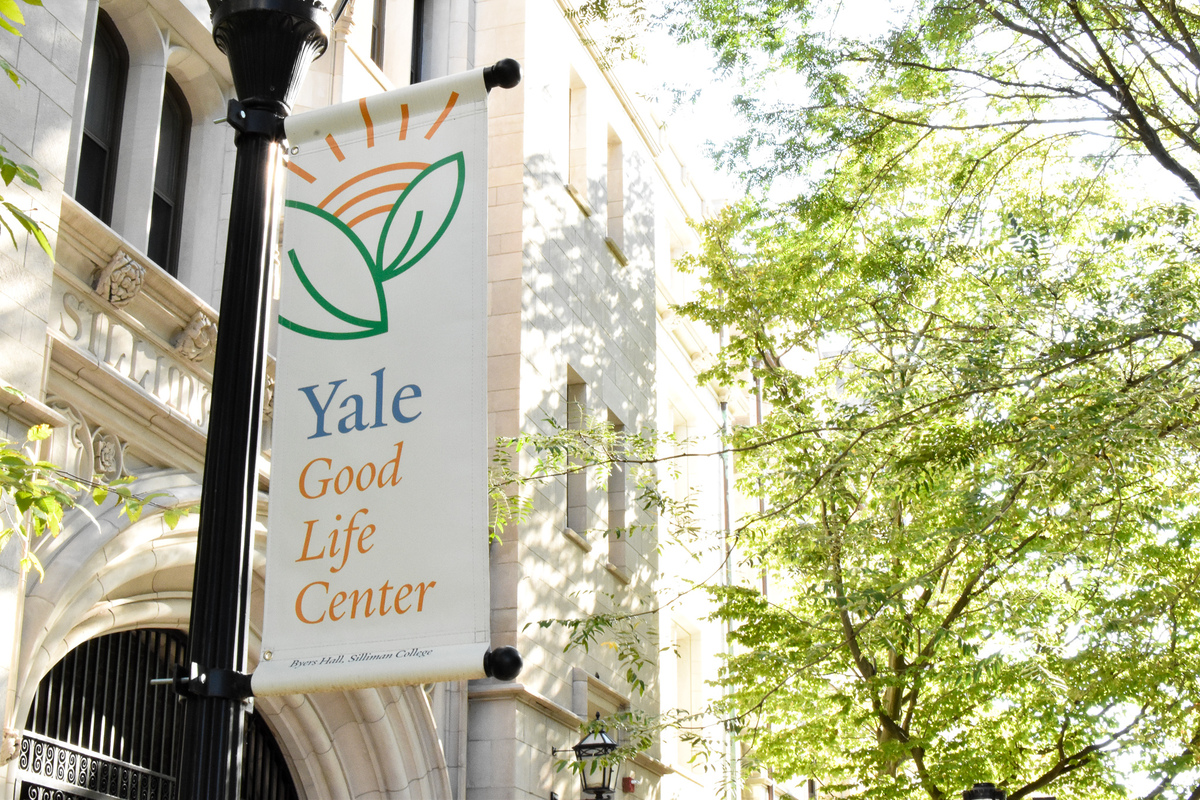Yale’s most popular course sees lower student ratings
Commonly known as the “happiness” course, Laurie Santos’ Psychology and the Good Life saw a nearly one-point drop in course ratings this past spring.

Karen Lin, Senior Photographer
The science of learning how to be happy has left some students feeling rather unhappy.
When Psychology and the Good Life was first taught in Spring 2018, the course made national headlines as one of Yale’s most popular classes of all time.
Taught by professor Laurie Santos, a celebrated cognitive scientist and psychologist, the course utilized psychological insights to teach students how to live a better, happier life. At the time, 1,147 students were enrolled in the course, roughly one quarter of the undergraduate population.
In Spring 2022, the course was offered again, but with an enrollment cap of 461. The course was once again met with high demand, with over 700 students considering the course – making it the most “shopped” course for undergraduates.
Despite the popularity, the course received an average student rating of 2.9 out of five by students in Spring 2022, a nearly one-point decline from the 3.7 rating in Spring 2018. Anonymous course ratings and evaluations are available to students on the University’s online course registration system, Yale Course Search.
“I was a little surprised [by the rating] but I guess it made sense once I thought about it,” said Micky Rose ’25, who took the course in Spring 2022. “I think some people were annoyed to find that to do well grade wise, they actually had to try, so they gave it low ratings. I obviously don’t know if any of that is actually true, but I feel like there was a perfect storm of individual and social expectations that led a lot of people to rate it lower than it deserved.”
Psychology and the Good Life explores scientifically-validated strategies for living a better life. According to the class’s syllabus, the course begins by introducing misconceptions about what makes for a satisfying life, then proceeds to cover psychological biases and psychological research in order to identify what is truly important for leading a better life and concludes by asking students to think critically about how to make a difference in their communities.
According to Andy Jiang ’25, another Spring 2022 student, Psychology and the Good Life felt like a “must-take” because of its high popularity and because of its relevance for his personal life. He added, however, that the course often covered topics too quickly.
“Oftentimes it felt that a lot of the content was presented as ‘you should know this’ with a citation or two and we quickly moved on,” Jiang said. “Despite the relevance of the material, the way it was presented oftentimes wasn’t as engaging.”
Justin Li ’25, who also took the course in Spring 2022, explained that he felt certain conclusions were “stretched to fit a narrative,” which he believes took away from the legitimacy of the class.
For Rose, the decision to take Psychology and the Good Life was motivated both by a need to fulfill a social science credit and an interest in happiness and mental health. She added that the scientific studies made the course particularly engaging.
“I’m a STEM major and it’s kind of my overall personality type to question claims that I find not very believable,” Rose said. “Obviously the class made a lot of claims about money, grades, happiness, that are counterintuitive to most people and to Yale students especially. So my favorite part was that everything was cited, everything had a credible source and study to back it up.”
Psychology and the Good Life has no prerequisites and can be taken by any student at Yale. Over the course of the semester, students are graded based on quizzes, a midterm exam, a final exam and a research project proposal.
In addition to developing Psychology and the Good Life in 2018, Santos also founded the Good Life Center in Silliman College, which also opened in 2018. The center serves as a wellness space that also offers programming and events to promote mental health.
In February 2022, Santos announced that she would take a one-year leave from Yale in the 2022-23 academic year to address her own feelings of burnout.
Santos did not respond to a request for comment.
Despite the drop in overall course rating, Santos has maintained a 4.1 professor rating out of five both times that Psychology and the Good Life has been taught. The workload rating was 2.1 out of five in both 2018 and 2022.
Overall, students interviewed by the News described the course content as engaging and relevant. Jiang explained that he particularly enjoyed assignments that applied psychological topics to daily life.
“If you put aside the expectations that come with the popularity of the class, I do think anyone can leave Psych and the Good Life with one or two useful things they can implement into their lives,” Li said.
Psychology was Yale’s fifth most popular major in the 2021-22 academic year.
Correction, Nov. 16: This article has been updated with Rose’s correct pronouns.







